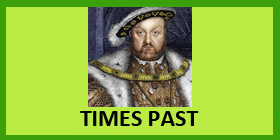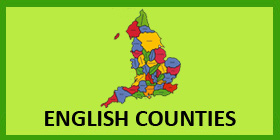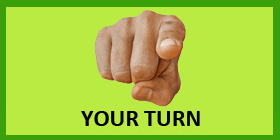




Back to the Archives Page

Bombarding you with choice again. Listen to Molly and Richard on their monthly podcasts or delve into the archives of Richard's thoughts on
education over the last nearly twenty years.


Also on this page is our view on how English history should be taught
![]()
I wrote the following piece in 2019 and it gives my thoughts about how children should learn about English history (I can but dream). If you have any
thoughts or comments, send me an email.
Have you tried getting children to learn their times tables but only do 3, 4, 7 and 9? Have you tried helping kids learn the
alphabet but only telling them about a,b,f,j,n,p,s,t,w and z? Have you helped them learn and understand Macbeth but only studied acts two
and five? Have you taught French but only the present tense? Unlikely I guess. Therefore, explain to me if you can why we learn history by only taking four
or five swathes of the subject during a child's school life. The Romans, The Tudors, The Victorians and the Second World War are the main
ones children seem to learn. Why?
I know I have a non-financial vested interest here but it seems ridiculous to only learn bits of a long and varied past,
especially since we only got to where we are today by going through ALL parts of our past. In fact would the Romans have bothered with
Britain if no one had known about our riches in tin and copper from the Bronze Age? The Tudors would never have happened without the Wars
of the Roses. The Victorians needed Queen Anne to die childless, and the causes of the Second World War could be said to have been
influenced both by World War One and the Great Depression.
I am not talking about GCSE study here. At that stage it is quite correct that pupils should specialise on certain periods
of history. I am talking about earlier education; maybe 8 years when children could, and I believe should, go on a historical journey
through our island country's past from the end of the last ice age to the present day. They could start at age 5 and finish at age 13.
History even lends itself to such a journey, becoming more complicated and harder to understand as you go on.
How would this look:-
- year 1 – the Ice Age ending until the end of the Bronze Age
- year 2 – the Iron Age and the Romans
- year 3 – the Anglo-Saxons and the Vikings
- year 4 – the Normans and Plantagenets
- year 5 – the Wars of the Roses, the Tudors and Stuarts
- year 6 – the Georgians and Victorians and the agrarian and industrial revolutions
- year 7 – the first half of the twentieth century and two world wars
- year 8 – the second half of the twentieth century and a bit of this one.
Learning in almost every other subject is progressive so why not with history. It seems so simple and so obvious. Pupils actually progress
from one year to the next. Teachers can get to specialise in a period. There is no need for any in-depth study, that comes after year 8
in secondary school.
But, what this idea achieves, is to build a complete picture before that in-depth study. The learners have seen how people and
events were influenced by things which happened before, In other words, returning to my first paragraph, they know why Macbeth is embarking
on his murderous spree and why Banquo's son Fleance is in danger.
You can easily bring in some world history too. The Romans being an obvious example, the Greeks would be an easy link, or the
Asian culture with trade and the silk road. Once England began to explore, world history is forever linked.
The website we have developed over the last few years allows just such a learning programme. It doesn't include the world history
part but a teacher can build that in with no problem. We take you on a natural journey through English history. It's possibly unfortunate I
chose an analogy with “the Scottish play” to explain my idea for English history but even some 58 years on I do remember my set books at
“O” level. The information on our website is progressive. It covers both actual events (the timeline), more personal history (the hoots) and
gives a chance for children to use their imagination (the stories). It is also incredibly easy to use the material for cross-curricula
activity; reading and writing being obvious examples but maths and science can link from our site.
I have always maintained that imagination is the single most important quality in trying to learn history and it is far easier to
use imagination progressively than being thrown into some period of history and having to imagine how everyone might have got there without having
any prior knowledge. We all got to where we are from somewhere else and we will all progress to somewhere from here. Imagination combined with
knowledge and memory can help us on that journey and can, if correctly used, prevent us from making the same mistakes as in the past. After all
Einstein was quoted as saying that “The true sign of intelligence is not knowledge but imagination" and that “logic will get you from A to B.
Imagination will take you everywhere".
At present our site has simple text and pictures but we intend to enhance the thoughts of Mr Einstein, and our site, by adding
some video clips to the site about places and events and then about the more personal histories on the hoots pages. This will come from a
journey we make, starting in January 2026. I am not a newcomer when it comes to taking people on a real learning journey and you can see more
about that on our background page.
With all of this our aim is to bring history alive and our learners can build a more visual base on which to construct their
imagination, a deeper foundation to build their knowledge. For although the true sign of intelligence may not be knowledge, it is a great
place to begin your learning journey.
![]()
![]() Back to the top
Back to the top
